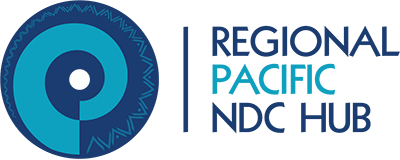Energy audit for the tourism sector
Country: Samoa
Phase: 2
Status: Completed
Related Strategic Priority Outcomes: Improved NDC planning, policy, strategy and legislation
Summary of Activity:
In line with the Samoa’s second Nationally Determined Contributions submission in 2021 to the UNFCCC, the energy audit of the Tourism Sector will propel the way forward for a more energy efficient and resilient tourism sector
A recent Energy Audit of a medium-sized hotel in Samoa provided important recommendations and guidelines on how the tourism sector can significantly contribute to reducing national greenhouse gas emissions by applying smarter energy (and cost) saving construction designs, converting to renewable energy sources, installing cost-effective and energy efficient equipment and appliances and through diligent and systematic monitoring and management of energy consumption. This audit is seen as a very timely exercise as the country prepares for a robust recovery of its tourism industry.
Samoa’s Assistant Chief Executive Officer of MNRE and head of the Renewable Energy Division Ms Toiata Uili said that the activity to audit the energy usage in the tourism sector was very important to help manage energy demands and usage through the implementation of energy savings or energy efficient appliances.
“Through this energy audit, we can be able to bring down our energy demands and avoid stressing out the grid electricity supply,” Toiata said.
“This will balance up the demand and supply to an equilibrium point that is good for the grid and will also assist in reducing GHG emissions from the electricity –subsector,” she added.
From this Energy Audit, Toiata said they will start looking and seeking for donor grants to fund the financial or grant schemes and projects to implement energy efficient and conservation projects which will greatly assist the Tourism Sector to reduce operating costs and reduce carbon emissions.
Samoa officially submitted its Second Nationally Determined Contribution to the United Nations Framework Convention on Climate Change (UNFCCC) on 30 July 2021 maintaining its climate commitment to the Paris Agreement for parties to communicate their NDCs.
The Second NDC was developed undertaking an inclusive stakeholder engagement process with key national stakeholders, ministries, and departments, with the technical assistance and support of the Regional Pacific NDC Hub.
Samoa’s Second NDC sets out a comprehensive package of policies and measures, sectorial targets and sector-specific actions which are tailor-made to meet its defined national contribution, focusing on mitigation in the energy (including electricity, land transport, maritime transport, and tourism) sector, the waste sector, and the agriculture, forestry, and other land use (AFOLU) sector. Samoa also prioritizes adaptation in its Second NDC focusing on the marine and AFOLU sectors as a priority.
The energy audit was led by the Ministry of Natural Resources and Environment (MNRE) and supported by GIZ under the Regional Pacific NDC Hub.
Implementing Partner: GIZ

